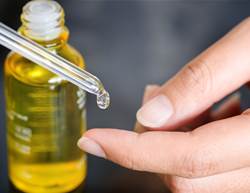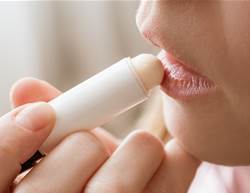As soon as the temperatures heat up and summer season swings into full gear, we reach into our cabinets to grab last year’s sunscreen. The only problem? Just like the items in your medicine cabinet, sunscreen has an expiration date, so that old bottle may not do you much good. Even though you may want to believe that the “use-by” and “best-by” dates stamped on your favourite bottles and sprays are just a suggestion, that’s simply not the case.
“Sunscreen does indeed expire and will always have an expiration date printed somewhere on the packaging,” says dermatologist Dr Lauren Fine. “A sunscreen that’s expired will not work as well and increases your chance of getting a sunburn.” Not only is getting a burn painful, it can increase your risk of skin cancer.
Another thing worth noting: If you bring your SPF along to the beach, and it sits in the heat and direct UV light, it may actually go bad before the expiration date, notes dermatologist Dr Lance Brown.
Surprised by these sunscreen truth bombs? There may be other things about staying sun-safe you don’t know-and it could be putting your health at risk. Put your sun care knowledge to the test with this quick quiz:
True or false? SPF represents how much longer a person can be out in the sun before getting sunburned compared to wearing no sunscreen at all.
Answer: True
Every sunscreen has an SPF, or a sun protection factor. SPF represents much longer a person can be out in the sun before getting sunburned compared to wearing no sunscreen at all, says Dr Fine. For example, SPF 30 means that you can safely be out in the sun 30 times longer than if you didn't wear sunscreen.
True or false? A fifty cent piece-sized amount of sunscreen is enough to cover your entire body.
Answer: False.
For sunscreen to be the most effective you need to apply enough of it. Aim to use a shot glass sized amount and reapply it every two hours, says Dr Fine.
True or false? The UV index is a calculation that helps people understand how much UV radiation is reaching them on a given day.
Answer: True!
UV index is indeed a calculation that helps people understand how much UV radiation is reaching us on a given day, in a specific location. It spans from 0 (low) to 11 (extreme). A lower index typically means less solar or UV radiation risk. Higher numbers mean more radiation and danger, says dermatologist Dr Jennifer MacGregor. “This is like a weather forecast,” she says. “It takes into account elevation, ozone layer protection, cloud coverage, and other factors to alert individuals to days or locations that might be particularly dangerous.”
Remember: UVA radiation comes through clouds and windows to damage the skin (causing inflammation, ageing, and skin cancer) even on days that aren’t sunny or might have a lower index. Detailed weather sites will have these numbers readily available.
True or false? If your makeup or moisturiser has SPF you don't need to wear more sunblock on your face.
Answer: False
Choosing makeup or moisturisers with SPF is a bonus, but they’re definitely not enough to get you through the day. “Though these products contain SPF, you would have to use such an enormous amount and re-apply so frequently that it would not be realistic to use those products as a sunscreen,” says Dr Brown, who suggests applying a moisturiser or makeup with SPF, and then following it up with sunscreen 20 minutes before you go out in the sun. Brown also cautions that makeup with an SPF of 15 and a sunscreen with an SPF of 15 doesn’t equal SPF 30. “There is no cumulative effect.”
True or false? Coconut oil helps sunburns.
Answer: True and false
Trick question, sorry! On the one hand, once you’re sunburned, the damage is done. However, coconut oil can help soothe the situation. “Moisturisers, including coconut oil, oral anti-inflammatory medications like ibuprofen, topical anti-inflammatory medications like hydrocortisone or prescription-strength corticosteroids, and topical antioxidants like vitamin C can be used after the fact to mitigate some of the inflammation,” Dr MacGregor says.
True or false: Your eyes can get sunburned.
Answer: True (horrifying, we know)
UV radiation from the sun can damage not only eyelid skin but also the cornea, lens, and other parts of the eye. Save your pretty peepers with a solid pair of sunglasses, suggests Dr Fine. “Look for sunglasses that block 99 to 100 percent of both UVA and UVB rays and 75 to 90 percent of visible light,” she suggests. She also shares this great news for fashionistas: The colour or shading of the lens does not affect how well they block out UV rays. “Just make sure your sunglasses fit properly,” she says. “They should be close-fitting and stay in place with movement. Wrap around styles and wide lenses ensure your eyes are protected from every angle.”
True or false? Sun exposure is the only thing that can cause skin cancer.
Answer: False
Although ultraviolet UVA and UVB rays are a major source of skin cancer, says dermatologist Dr Rebecca Baxt, they’re not the only causes. “Some skin cancers are genetic, and some occur without any determinable source.”
True or false: Higher SPFs don't need to be reapplied as often.
Answer: False
“While sunscreens with an SPF of 50 and greater may offer slightly more protection, they still need to be reapplied just as frequently as any sunscreen,” says Dr Fine.






.png&h=193&w=250&c=1&s=1)

.png&h=193&w=250&c=1&s=1)

